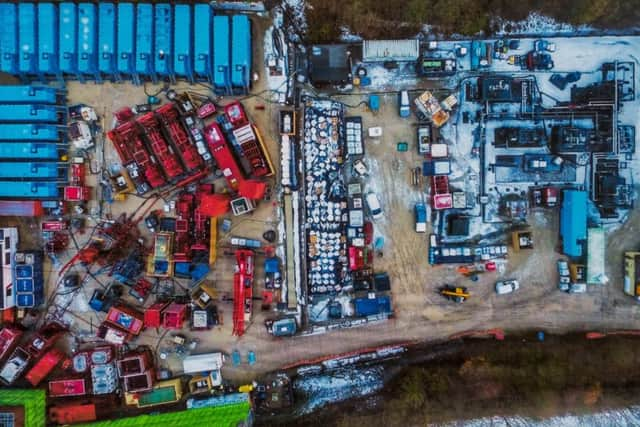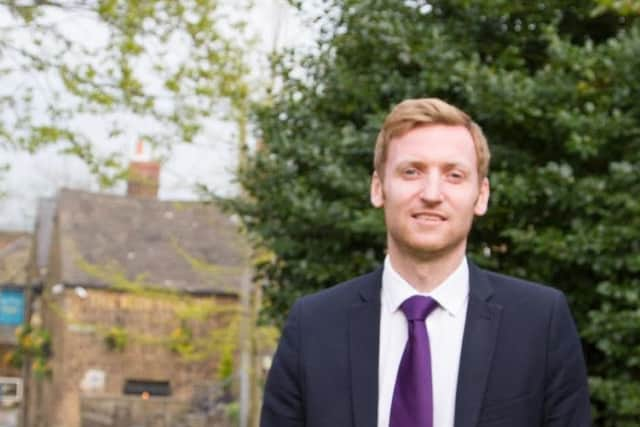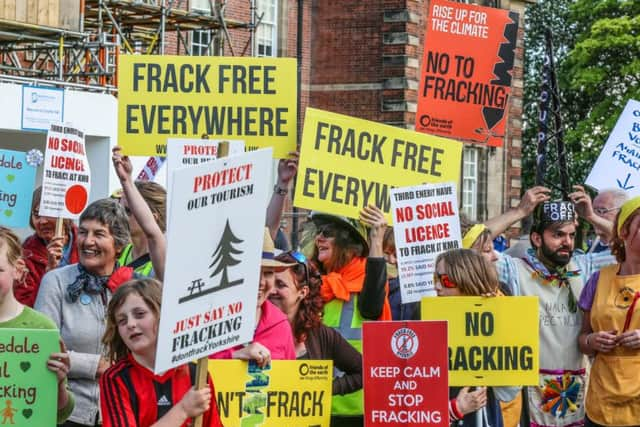Lee Rowley: How my proposed law will limit the ability of fracking to create earthquakes
For those communities, a shadow across the landscape is created by the implications for their local area — for the roads and the loss of agricultural fields — and the industrial impact in otherwise heavily rural areas.
Advertisement
Hide AdAdvertisement
Hide AdI wish to introduce a Bill because of the continuing attempts by the industry, perfectly legitimately, to try to tweak and change some of the regulations that govern fracking.


People from Cardiff Business School and the industry came to Westminster a few months ago and debated it. There was genuine consensus that if fracking is to be done at scale in our country, thousands of wells will be needed if there is to be any impact on replacing exports with domestic supply.
The Cardiff Business School report estimated that the number of wells required in the United Kingdom could be anything from 6,000 to in excess of 30,000 wells. All those wells are clustered in relatively small parts of the country — that is, where the petroleum licences are — and those include my part of the world as well as Yorkshire, Lancashire, little parts of Somerset, and Sussex.
The logical extension of talking about 6,000 to 30,000-odd wells is the involvement of thousands of locations in a relatively small space of time if fracking is to have any impact on the replacement of gas imports with internal production.
Advertisement
Hide AdAdvertisement
Hide AdIn my community of Marsh Lane, permission for fracking exploration has been granted against its will. It is in the middle of green-belt land in the Derbyshire countryside that has remained substantially unchanged since the enclosure Acts of 1795.


As a result, we are faced with a proposal to place a light industrial estate in the middle of an agricultural field that has been used only for agricultural purposes, as far as we can tell, for more than 200 years, with over 10,000 vehicle movements in the exploratory phase alone; a substantial number of bulks, some over 10 metres high, for the entire period it is there; and a 60-metre-high drill rig during the six months it is being set up — all in the middle of green-belt countryside.
That is the impact in just one location. Multiply that by over 1,000 locations and the challenge becomes that we risk substantially industrialising the countryside and other parts of this country where petroleum licences have been issued.
On top of the scale and impact challenge comes another problem. There is a desire, because fracking has not been successful in the eight years it has been tested, to tweak the rules to make it more palatable. First, the National Planning Policy Framework was changed several months ago in effect to prioritise fracking irrespective of where it was — whether in green belt, countryside or other locations that otherwise would be completely ignored and considered inappropriate for such development.
Advertisement
Hide AdAdvertisement
Hide AdSecondly, an attempt was made last year to loosen the planning policy rules around fracking. It was proposed that fracking exploration – that light industrial estate plonked in the green belt in places such as my constituency – be permitted through the same planning policy processes as those for a kitchen extension and that the actual production, which could last up to 25 years, be taken out of the hands of local people.


Then, in the last few months, after the failure of the first attempts to frack in this country for over half a decade – in Preston – the industry came back and said it wanted to change the rules around earthquakes. During that short two-month period in Lancashire when fracking was attempted before Christmas, more than 50 earthquakes were created near Blackpool – admittedly small ones, but earthquakes nonetheless – despite the fact that they got no further than about 10 per cent of the way through the industrial process of fracking. If we multiply that impact by the thousand or so sites in the country, we see the scale of the problem.
My Bill proposes to limit the ability of fracking to create earthquakes to its current regulatory acceptable limit of 0.5 on the Richter scale. The industry has clearly indicated that it wants the limits raised, but that would be entirely inappropriate. We should limit fracking activity in line with the existing regulations. The industry signed up to those several years ago, and any change to them would bring great anxiety, distress and worry to communities.
In conclusion, fracking is controversial because it has not worked, because it is not working and because it will not work from a practical and a community-based perspective. For that reason, I seek to limit in legislation the ability of seismic activity to take place over and above what the regulations already state.
Lee Rowley is the Conservative MP for North East Derbyshire. He has introduced a Bill to Parliament on fracking – this is an edited version.